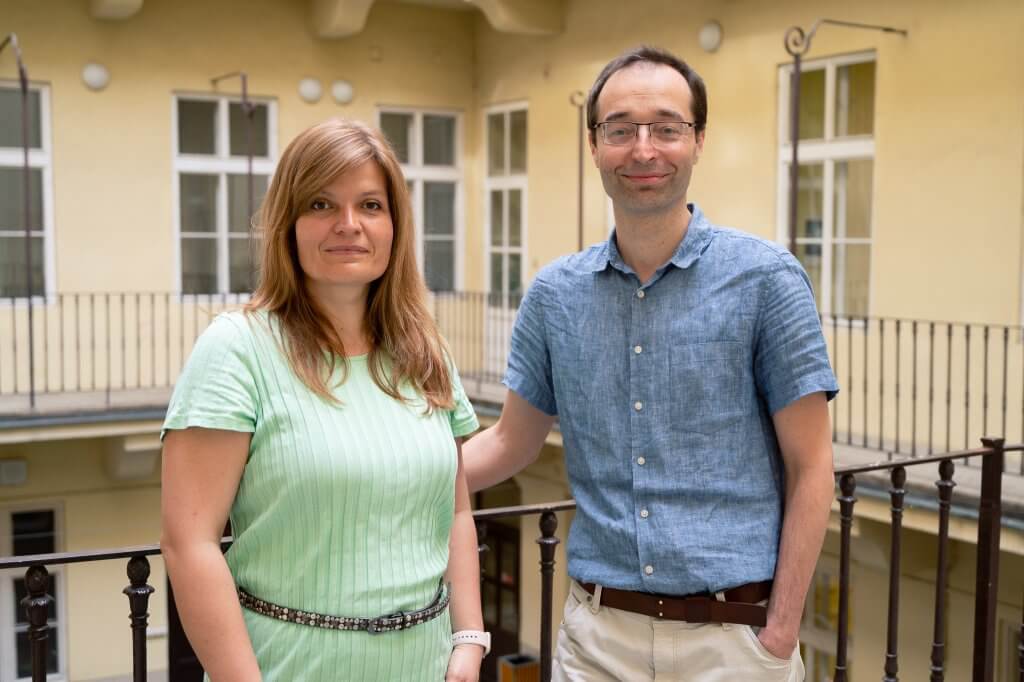Jan Váška: The UK is in a social crisis. Property prices in the country are skyrocketing

Read an interview with Jan Váška, a researcher at the Institute of International Studies, who focuses on European integration, the Czech Republic’s membership in international organisations and the UK’s political development. The interview was recorded as part of the De Facto podcast. This episode is hosted by doc. Alice Němcová Tejkalová.

Alice Němcová Tejkalová (ANT): The UK is now at the centre of the world’s attention for a number of reasons. The latest major happenings were the events surrounding the Princess of Wales’ illness and the debate about whether other countries are entering the UK environment through disinformation. How do you feel about the political situation in the UK in general?
Jan Váška (JV): I look at Britain more as a political scientist. It means I am focusing on the elections, which are probably coming up this autumn, they must be in January at the latest. But at the same time, what’s happening now before the election is not very interesting because the political situation over the last year and the expected layout of the cards are absolutely unchanging. What is interesting are the internal tensions in the two major parties, which rarely happen as a result of foreign political events. At the moment, however, both Labour and, more recently, the Conservatives are split on the question of the appropriate stance towards the conflict between Israel and Hamas. In particular, following the attack on the humanitarian convoy, which killed three British nationals, pressure is mounting for the British Government to suspend arms exports. There is now a lot of splintering of the whole interpretation and understanding of which side is defending itself in the conflict and which is the perpetrator, and it goes beyond certain generally set boundaries.
ANT: I’ll come back to the conflict between Hamas and Israel. How much can it affect the election itself?
JV: Rather, I think very little. Last autumn, shortly after these conflicts broke out, the Labour Party went through a major internal crisis which led to some long-standing members leaving the party. The British Labour Party, which is now in opposition under the leadership of Keir Starmer, supports the British Government in principle, which supports Israel’s right to defend itself in its basic contours, but tries by all means to emphasise that it is imperative that Israel abides by the principles of international humanitarian law.
But many supporters, members of the left wing, have long held an instinctively pro-Palestinian reading, for them the Palestinians have long been the victims in this conflict. This stems from the fact that support for the Palestinian cause has been a heartland of the Western European left since the 1970s and 1980s. And the Labour Party is the political formation in which the majority of British Muslims who have a distinct position are concentrated. It also has to do with the fact that there has long been an internal problem in the Labour Party with unaddressed anti-Semitism, which ultimately led to the downfall of Jeremy Corbyn. And this split, where the left-wing currents started to get a bit sideways after Starmer’s ascendancy and some cleansing in the party, they’re coming back again. And so there was a question of how visible and how damaging that would be. But the potential for it to break Labour or its support before the election doesn’t seem to be there and ultimately the electorate will, as always, decide on economic issues.
ANT: What does Britain look like now? We are seeing remotely, through our students and friends in academia, the huge problem they have with housing affordability for all segments of the population.
JV: I would like to avoid the phrase that Britain is in a social crisis, but if you look at it from a certain angle, it’s simply true. The Conservatives first in coalition and then on their own have been in power for 14 years. When they came to power in the midst of the financial crisis, they launched an effort to consolidate the public finances through very drastic budget cuts across the board, and that has put a significant damper on the British economy. Then came the next blow in the form of Brexit and the economic consequences. Brexit is clearly undermining British economic growth, so that the economy has not been growing there, and neither have the real incomes of the majority of the population and the middle classes for basically 15 years.
The number of people using food banks there has been increasing dramatically with the housing crisis. While wages are stagnating, house prices and rents, especially in parts of the country where economic growth is concentrated, are rising at a rocketing rate. There are virtually no vacant homes in England. It is estimated that at the moment Britain has a shortfall of around 4.5 million housing units. The Conservative Government now has a target to encourage the building of about 300 000 new houses or flats a year. I have seen the calculation, and even if it can realistically meet that, it will take more than half a century to make up that deficit. And in the meantime the population will grow.
Britain has also had a huge positive migration balance in recent years. Why this is so is not yet clear to me. For the last two years it has been about three quarters of a million people a year, most of them outside the European continent and the European Union.
ANT: So very likely migrants from African countries who are now gradually making their way into Britain?
JV: I think Africa will be more of a minority thing. So is the number of war refugees from Ukraine, which is in the low hundreds. But I haven’t seen the statistics broken down. So for the Conservative government the issue of migration, particularly undocumented migrants trying to get to England in small boats across the Channel, is very much a visible issue. It is also an issue that is important to some voters. But in the last year, the number of migrants who have come in this way is estimated at about 30,000. And it’s going down this year. So it’s a relatively small part of the total. I think the main source of migration will be in Southeast Asia.
ANT: Previously, a lot of us had the idea that Britain or the United States would be a better place to live than here. Now I’m seeing more and more people in our generation who, precisely because they travel so much, feel great here. And we tell everybody how lucky we are to have a good time. Do you share that perspective or do you have a different perspective?
JV: The fact is that the Anglo-Saxon world, which we idealised a lot, was always the first ideal destination. But it’s true that there it depends a lot on who you are, what your background is, what you can do. I think that most of us would be able to get a foothold and make it in Britain, of course. At the same time, if I had to choose, I would look for a place on the continent that is culturally closer. So Scotland, for example.
ANT: That’s an interesting perspective. And will Scotland ever separate?
JV: Not in the short or medium term. I think there are a lot of Scots who are gravitating towards the idea of independence, but if there was a new referendum, I think it would turn out very similar to what it did 10 years ago. The polls show that the two camps are pretty much evenly matched. But I think that when the more pragmatic pro-independence campaigners see the huge complications that have accompanied the UK’s separation from the European Union, they realise that the impact of breaking the Union with England and other historic countries where there are even closer links would be much more painful, and not just economically. But the economic consequences, at least in the short term, would be very severe.


